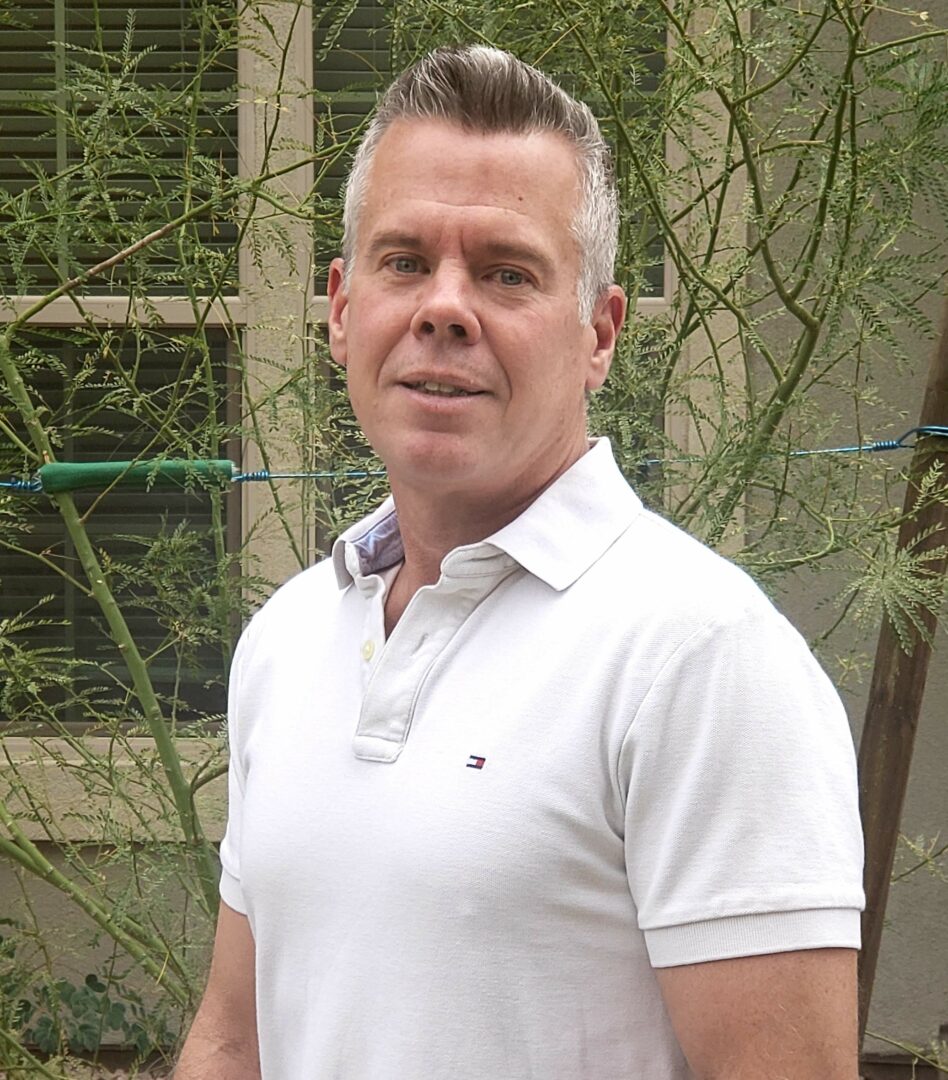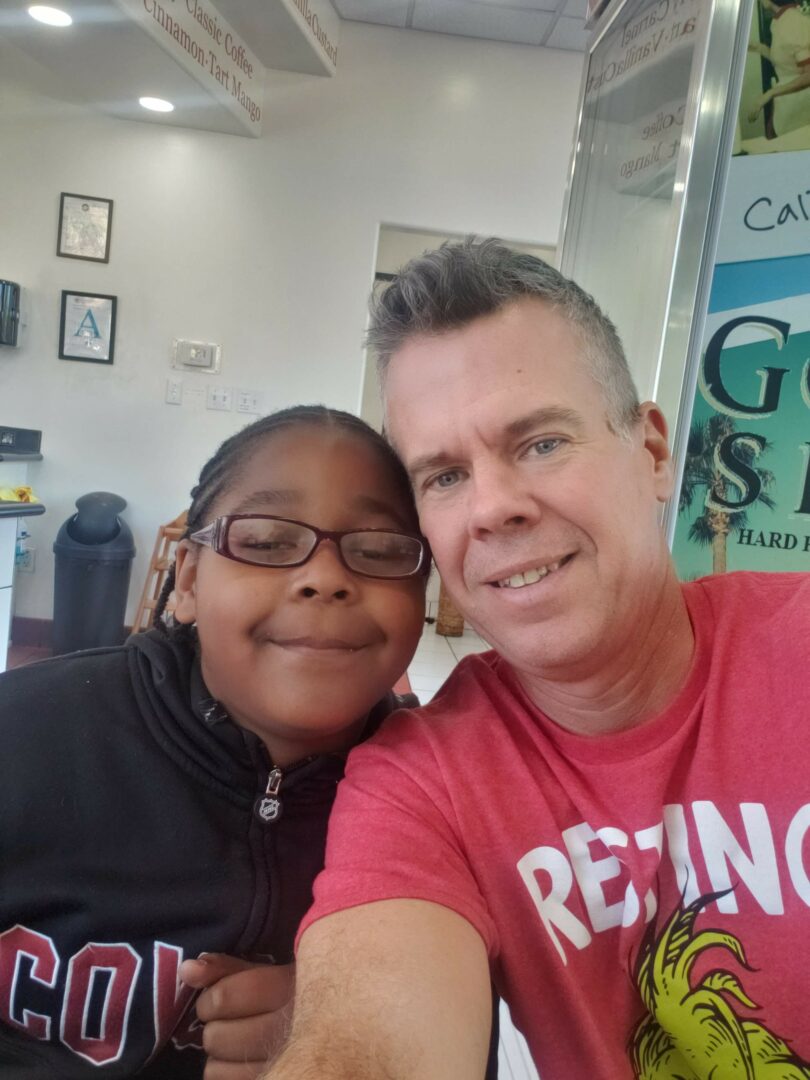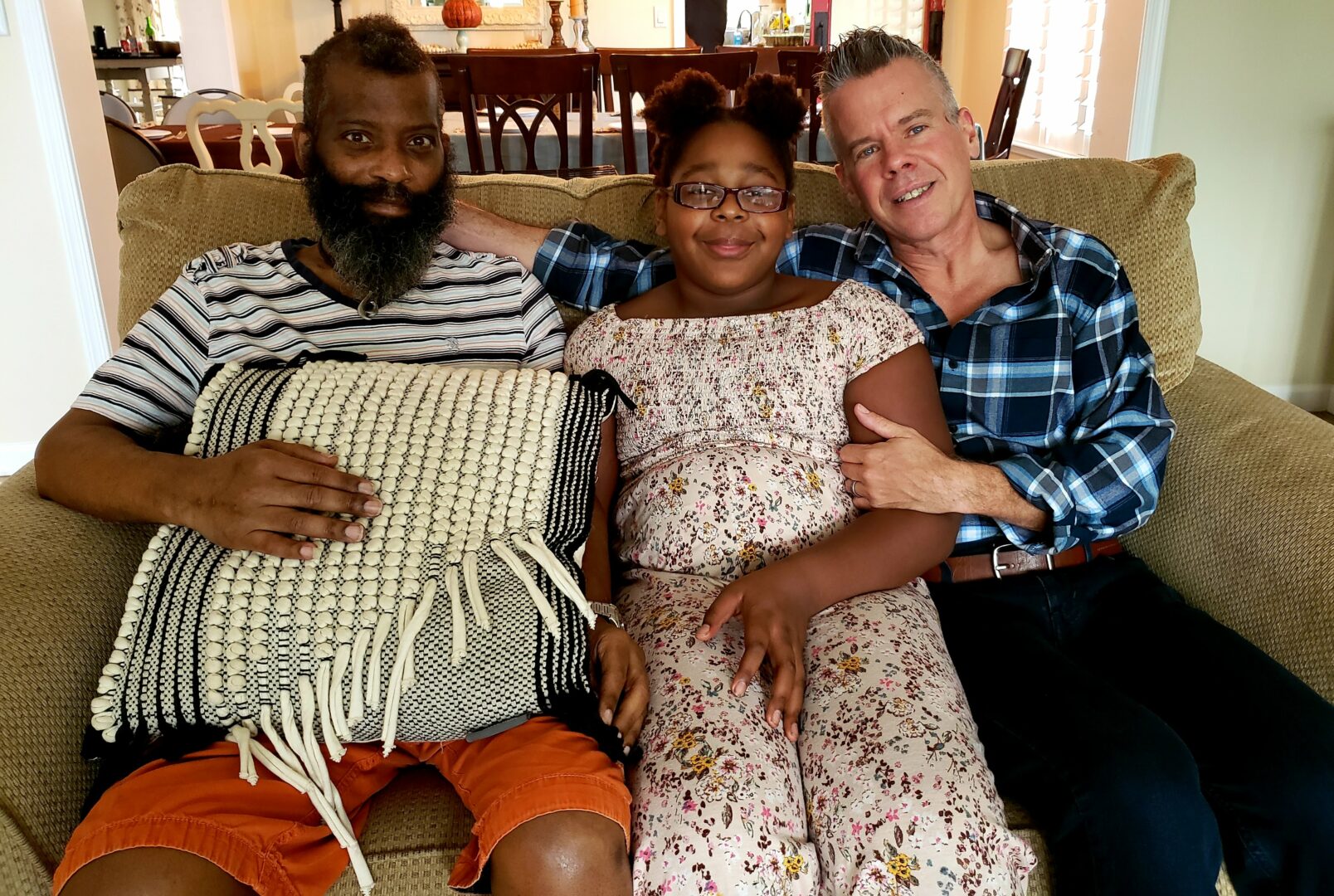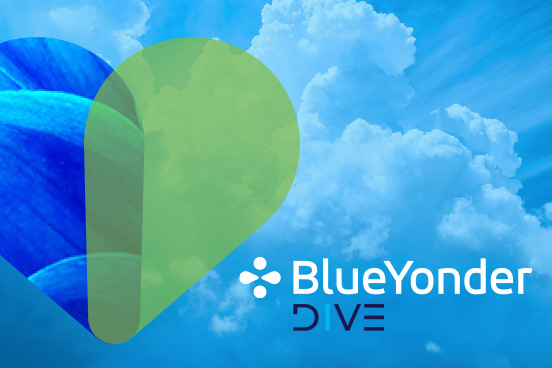Bobby Heptig believes it’s important to be yourself – just as Blue Yonder’s Associate Resource Group (ARG) BYourself states. In this week’s DIVE IN blog he shares his experiences as a gay man – from adopting a daughter and recognizing his own biases – and how the LGBTQ+ community should not be painted with a broad brush.

Can you start off by telling me about your family?
I have been with my partner for 24 years, and we adopted our daughter Sabrina when she was just one day old. She is now 12. When she started going to school, I was worried she’d be teased or made fun of. Every year when she started the next grade, I would talk to her about the ‘get to know you conversation’ she’d likely have with her teacher and other students, and I would say ‘if anyone says anything about you having two dads, we can talk about it.’ When she was in 3rd grade, she said ‘Daddy, can we stop talking about this? Nobody cares. They all know I have two dads!” That’s when I felt like I could get off the soap box.
You’re part of our newest ARG – BYourself – why did you want to join this ARG?
For me, being out at work is something I have done for a long time. I think it’s important for people that are new to the company or unsure how to present their personal life to see this ARG and know it can be their safe place. And to know that they can be themselves at work and don’t need to hide who they really are.
Participating in our DIVE In video, you said you knew what it felt like to not feel accepted. Can you share a little more about that and your story?
If you are not out, you are limited in the conversations you have with your coworkers. For example, when talking about your weekend or your social life, you feel like you can’t participate because you will either have to change your pronouns a lot when referring to your significant other, or just try to change the subject. I used to find myself trying to move the conversation to a different topic because it would be uncomfortable for me.
And sometimes, it’s not because you’re afraid to expose yourself, it is because you don’t want them to be embarrassed if you did slip up and they didn’t know.
What are some of the misconceptions you’d like to rectify when it comes to the LGBTQ+ community?
It’s that we are not all the same. There are a wide spectrum of people in our community. Each segment has a right to be proud of who they are. I don’t like it when we get painted with a broad brush.

It is similar to if you are Latino or African American, for example. People in those communities are similar but also vastly different from each other. They may share a common experience but aren’t the same. The LGBTQ+ community goes across racial lines. A Black lesbian woman may have a different experience than a White gay man, even if they live in same area or work at the same job. There are differences.
It also bothers me that society has tried to make it seem like we are exactly the same as straight people but *just* love someone of the same sex. I don’t think that’s true. Our relationships are different, our traditions are different, how we approach friendships are different. We aren’t the same as straight people. That should also be acknowledged.
Can you give an example of how you may approach relationships differently?
I think the expectations of each other are different. I remember during the fight for marriage, some of the big gay rights groups made a huge effort to make it seem like we are the same as straight people – we want the same things. But we aren’t. We may have different traditions and priorities, our views on what a relationship means may even be different, and our focus on children, monogamy and religion may differ from a straight couple.
What are some micro affirmations that could be helpful for the LGBTQ+ community? (*small, subtle ways someone can make you feel supported and respected)
Don’t be afraid to ask questions. Questions can be affirming!
If you feel something is awkward, bring it up. Nobody in that conversation wants to feel awkward.
It was different for those who grew up when I did (I graduated in the 1980s). Things were different then. Doing this blog and being part of this ARG, I still now even get a little tinge of worry. I think I need to be careful of what I say because I go back to when I was growing up, and being gay was ‘wrong’ back then. Even though I am completely fine with it, I am out and have been for a long time, it still happens from time to time.
Can you share how being in the LGBTQ+ community has given you better empathy?
I don’t think it makes me have more empathy than anyone else. We all have biases. I sometimes feel like if you could walk in my shoes, you’d see things were different…but that applies to me too. Maybe I am more aware of it but doesn’t make me any better at having empathy.
Can you give any advice how someone can be a better ally?
Ask questions. Don’t go on assumptions. If you are friends with someone, you should be able to talk, and there shouldn’t be hurt feelings. For me, I am not walking around the building with a rainbow flag, it is part of me, but doesn’t necessarily define me.

Have you ever realized you had an unconscious bias? What did you do about it?
For me, my partner is Black and I am white. I think when we first got together, I considered myself a very empathetic person. I always felt like the rights of minorities were important. I thought I knew everything that went into being Black in America. Then when living with someone for so long, I realized I actually don’t. Even though he’s Black and my daughter is too, as much as I try to think I understand all of it, I still know I don’t. I stopped trying and started to listen more.
Looking back, is there anything in your career that surprises you or that you’d change?
Probably what surprised me most, especially considering when I grew up, is that I can’t think of a super negative experience that I had in coming out. Certainly not at work. I have always felt welcomed here at Blue Yonder over the last 20 years. In other places I worked as well, I never really experienced any negativity, when I thought I might have.
What’s one piece of advice you would have given your younger self?
Come out earlier.
What’s the best decision you’ve ever made?
Adopting our daughter. My partner wanted a child for a long time and I was ambivalent about it. We had saved some money. We were between going on a European vacation or adopting a child. We went for the adoption process and expected to spend a lot of money and not to be successful at adoption. Surprisingly it moved a lot faster than I thought and turned out the best thing we ever did!
Can you name a positive thing that has happened in your life since the pandemic began?
It’s just realizing that we are a lot more resilient than we thought we were. Things slowly piled on to each other – no more sports, offices closed, you can’t travel – but by the time we got to summer 2020, it was bad everywhere. But we came out of it stronger. It’s okay to have a hard time with this stuff, because everyone else is too.

